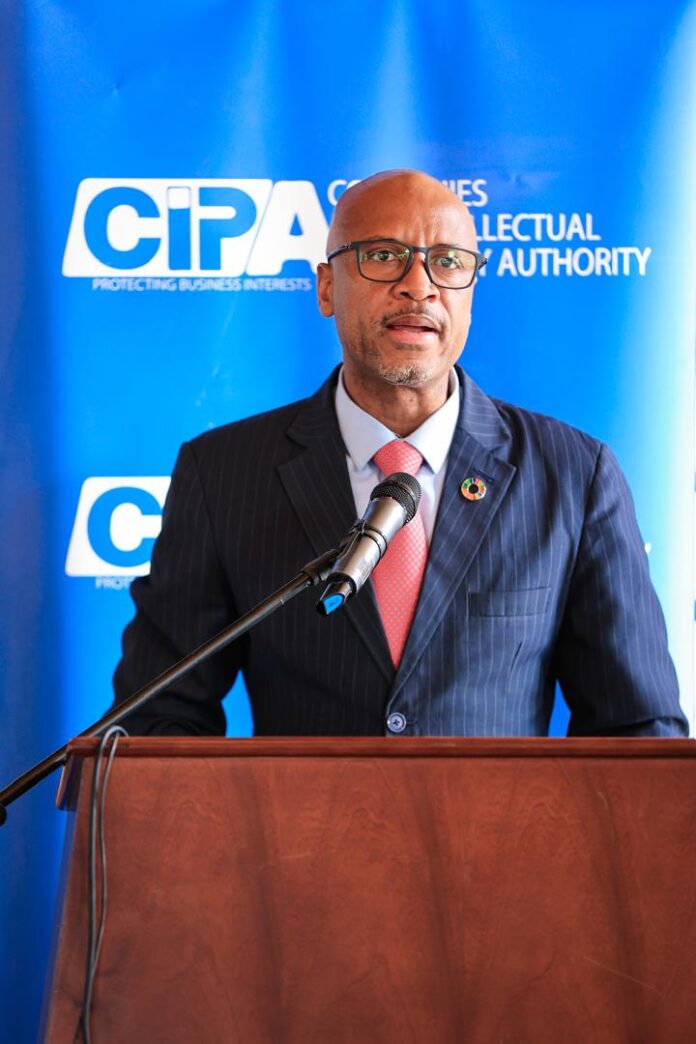
13th June 2024
Own Correspondent
The Companies and Intellectual Property Authority (CIPA) revealed it is focused on harnessing the power of Intellectual Property for transformation into a knowledge-driven economy with increased emphasis on intangible assets and intellectual capital.
IP rights, including patents, trademarks and copyrights, protect the myriad creations of the mind – from inventions and designs to literary and artistic works.
“The Companies and Intellectual Property Authority (CIPA) does a lot of work behind the scenes to harness IP for economic transformation, through a wide range of awareness and education activities, through on-the-ground projects, and through collaboration with strategic partners,” said Joel Duke Ramaphoi, Caretaker Registrar General, Companies and Intellectual Property Authority (CIPA)
He said, “We consider the role of media as important not only in promoting IP awareness and understanding amongst Batswana, but also a key source of information for businesses, especially SMEs and aspiring entrepreneurs, who are looking for guidance on how to protect their IP. IP’s Increasing Relevance in public policy.”
According to CIPA, IP rights and their value are often not adequately appreciated, particularly by our
SMEs and other aspiring entrepreneurs. This is not withstanding the fact that, in the increasingly knowledge driven economy, IP is a key consideration in day-to-day business decisions.
New products, brands and creative designs appear almost daily on the market and are the result of continuous human innovation and creativity.
In this context, SME’s are expected to be the driving force behind such innovations. However, their innovative and creative capacity is often not exploited as many of them are not aware of the IP system or the protection it can provide for their inventions.
CIPA maintains that even where IP awareness is improving, the real literacy and real understanding is not on the same trajectory.
For example, a WIPO IP Awareness and Perception Survey of IP Rights in 2023 indicates that African states tends to be amongst those with high awareness index scores and perception of IP regarding trademarks and designs.
The Authority is therefore working hand in hand with the World Intellectual Property Organization (WIPO) in a project to capacitate 50 small businesses on IP.
The beneficiaries were selected collectively by CIPA, Local Enterprise Authority (LEA) and Botswana Investment and Trade Centre (BITC) and include Technology and Innovation Companies, Cosmetic companies, Fashion Designers and Fast Moving Consumer Goods (FMCG) companies.
“The objective of this project is to improve product packaging, upgrade the brands of these small businesses and get them ready for international markets in the African Continental Free Trade Area and beyond,” said Ramaphoi.
IP protection will be key to safeguarding their trademarks, designs, patents and other IPs as they build
their competitiveness to penetrate these new markets.
In this spirit, new legislation has been ratified to identify traditional knowledge that can be turned into commercially viable products and services. Furthermore, the policy states that Botswana will develop her pharmaceutical sector through traditional medicines.
According to officials, the member states of the World Intellectual Property Organization (WIPO) in May 2024, agreed to adopt a new treaty which addresses the interface between IP and traditional knowledge.
“We are in the process of identifying 25 traditional medicine practitioners that we will assist over the
coming 12 months. The objective is to train and mentor the beneficiaries to appreciate and apply branding, marketing and commercialization strategies to promote and boost traditional medicine, as well as to support the registration of their trademarks and indigenous knowledge for increased value addition,” said Ramaphoi.
The overall aim is to support them by re-packaging their products in a manner that is appealing not only to their target customers, but also to buyers in retail chains. At the culmination of the project CIPA expects to see more products of traditional medicine practitioners on the shelves of pharmacies and supermarket chains, with the knowledge behind the products secured by the IP system.
At the start of this year, there were quite a few copyright disputes over ownership of songs that played out in the public eye. We are happy to announce that the establishment of the Copyright Arbitration Panel, as mandated by Section 33A of the Copyright and Neighbouring Rights Act is at an advanced stage.
The Minister of Trade and Industry has duly appointed the following to the panel:
• Ms Obolokile C. Sekga – Chairperson
• Mr Kesupemang Pitlagano – Member
• Mr Ikanyeng Moshabi – Member
• Ms Lorato Modise – Member
The Chairperson is an attorney with vast experience in IP issues whilst three members of the Board are intellectual property experts from various sectors. The panel has already been trained on copyright arbitration, and have recently undergone benchmarking trip outside the country.
“We expect the panel to be fully operational during this financial year, providing a cost-effective resolution platform for disputes over songs, books, poems, films, visual arts, photography, architecture and other copyright protected works. When the Panel begins to run, CIPA will according make an announcement to its stakeholders,” said Ramaphoi.
He said, “We are cognisant of the fact that in order for the IP generated by Batswana to make the impact that we want in social upliftment, employment creation and economic diversification appropriate funding must be availed.
In February 2024, CIPA closed the Open Call for the submission of projects to be funded through grants from the Levy on Technical Devices Fund. To foster inclusivity amongst Fund beneficiaries and within creative industries, another open call for the Blind and Visually Impaired was closed in May 2024.
In this call, CIPA converted the open call into Braille and made 30 Braille copies. From these open calls CIPA has received a total of 1,182 submissions, including 25 from people with disabilities, and 2 by people who are blind and visually impaired. A total of 904 applications met the administrative requirements and proceeded to the technical evaluation stage.








